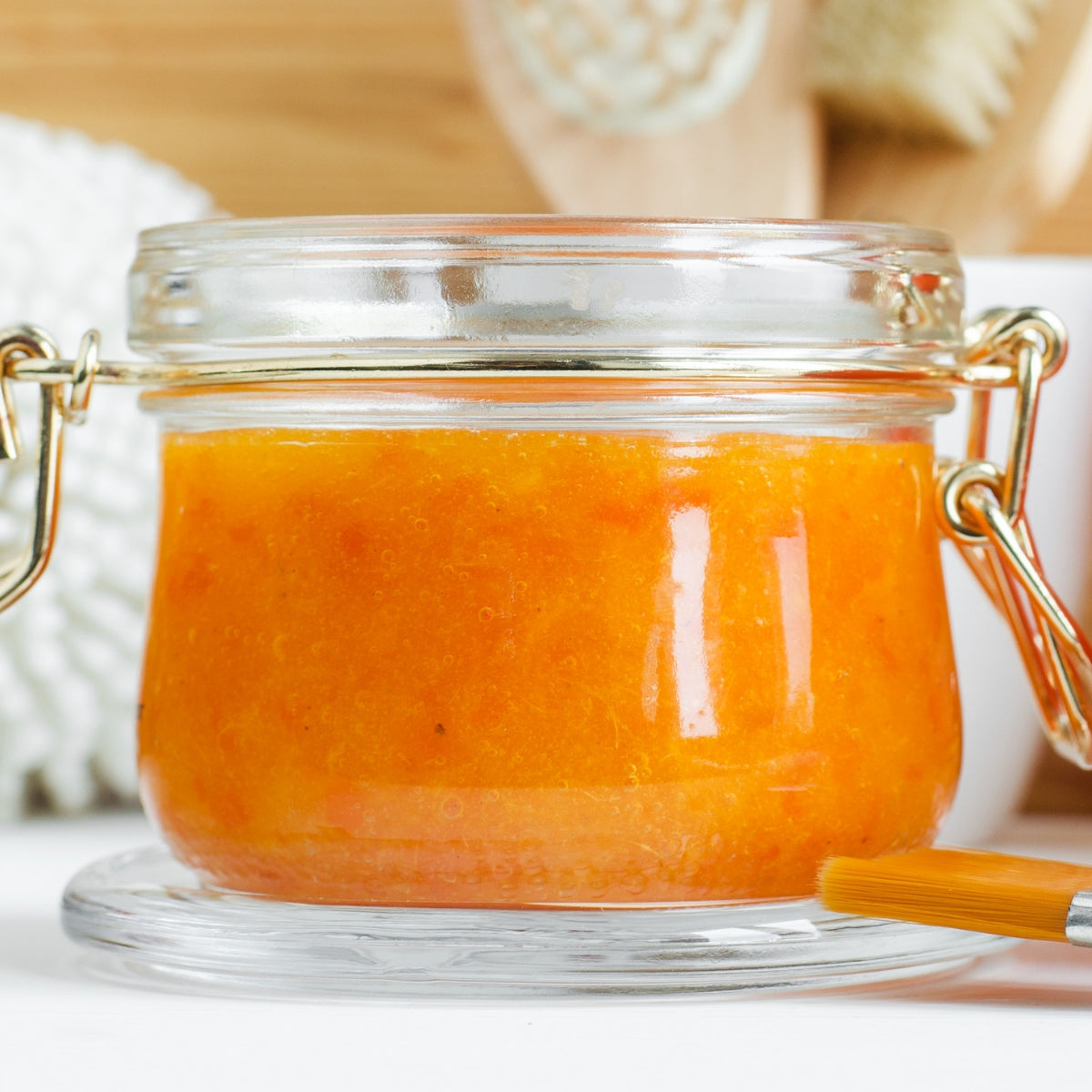Latest science shows that the road to Alzheimer’s actually begins decades before any symptoms - by the time you notice your memory deteriorating 40-50% of your brain cells are already damaged.
Read our interview with a Harvard-trained psychiatrist and expert in nutrition and college mental health Dr. Georgia Ede to discover:
- The condition, which is a fundamental cause of Alzheimer’s Disease, affecting 50% of American population today
- How Alzheimer’s can actually be prevented (and the studies that demonstrate this)?
- Which one food group has been found to literally cause brain damage?
- What we should be eating/drinking right now to nourish our brain and memory for the future?

Alzheimer’s disease is now the 3rd leading cause of death in the US with the number of cases projected to triple by 2050. It is a degenerative disease that practically writes off your last years on the planet, making it extra hard not only for you but also for your loved ones.
But it doesn’t have to be this way. Why? Because it is now known that what you do in your 20s, 30s and 40s can either reduce or increase your chances for Alzheimer’s (hint: it starts in the kitchen!).
To understand why Alzheimer’s is now called ‘Type 3 Diabetes’ and exactly what you can do this very moment to reduce its chances of future development, we interviewed Dr. Georgia Ede, a Harvard-trained psychiatrist specializing in nutrition and college mental health. Dr. Ede practices at Smith College in Northampton, Massachusetts and writes about nutrition science on her website DiagnosisDiet.com.
WELCOME DR. GEORGIA EDE
C&J: Alzheimer’s is commonly thought to be a disease of old age. But should younger people also be concerned about Alzheimer’s Disease?
Georgia: YES. We now understand that the road to Alzheimer’s Disease begins decades before any memory problems appear.
As a psychiatrist who specializes in the treatment of college students, I have become passionate about getting this vital message out to young people. Students often come to me concerned that their memory isn’t what it used to be in high school, and of course they are disappointed to hear that there are no medicines available that can improve their ability to remember things they are learning in class. What we have instead is powerful new knowledge about how the brain’s memory center works and what it needs in order to function properly.
We now understand the road to Alzheimer’s Disease begins decades before any memory problems appear
The science is now crystal clear: what you are eating and drinking right now determines not only how well your brain works today, but also whether or not it will continue to work for you tomorrow and into your golden years.
It turns out that people headed for Alzheimer’s Disease have slow brain sugar metabolism [1], which can start early in life and worsen over the years. Scientists can actually see this sugar processing problem using special brain images called PET scans. Scientists have detected this sign of future Alzheimer’s Disease in brains of people as young as 24 years old [2].
The good news is that you can improve your brain metabolism with dietary changes, no matter how young or old you are right now.
C&J: What is insulin resistance and how is it linked to the brain and memory?
Georgia: Insulin resistance (sometimes called “pre-diabetes” or “metabolic syndrome”) is a hormonal problem that makes it difficult for the body to process carbohydrates (sugars and starches) properly.
While there are other factors that play a role in the development of insulin resistance, the chief culprit is refined carbohydrates in the diet. These “fast carbs” cause insulin levels to run too high, which in turn causes the body and brain to gradually become resistant to insulin.
More than half of Americans [3], including a growing number of children [4], have insulin resistance already, and most don’t even realize it. Insulin resistance is public health enemy number one, putting us at high risk for weight gain, Type 2 Diabetes, heart disease, and even cancer [5]. Over the past ten years, researchers have accumulated enough incriminating evidence to add Alzheimer’s Disease to this list.
More than half of Americans have insulin resistance already, and most don’t even realize it.
Insulin resistance makes it difficult for insulin to cross from the bloodstream into the brain. This is dangerous, because brain cells need insulin in order to process sugar (glucose) and turn it into energy. If you can’t get enough insulin into your brain, brain metabolism slows down and brain cells literally begin starving to death, even though they are surrounded by plenty of food (glucose).
The brain’s memory center, which is called the hippocampus, needs even more insulin than most other parts of the brain do, so it is the first to go. Insulin deficiency makes it difficult for the hippocampus to form new memories and causes the hippocampus to gradually shrink in size. In fact, by the time a person notices the subtle memory problems of pre-Alzheimer’s (Mild Cognitive Impairment), the hippocampus has already shrunk by more than ten percent [6].
Two hallmarks of Alzheimer’s Disease that can be seen under a microscope are “neurofibrillary tangles” and “amyloid plaques”, which build up inside cells and damage cell function. Insulin helps to prevent these plaques and tangles from accumulating in the first place, so it is very important for your brain to get adequate insulin [7].
C&J: Why is Alzheimer’s Disease now called Type 3 Diabetes?
Brown University researcher Dr. Suzanne de la Monte was the first to start calling Alzheimer’s Disease Type 3 Diabetes [8] back in 2005, and the name has caught on.
People with Type 1 Diabetes cannot make insulin.
People with Type 2 Diabetes cannot use insulin properly.
Alzheimer’s Disease is called Type 3 Diabetes because it is also an insulin-related condition: we now understand that the fundamental problem in Alzheimer’s Disease is insulin deficiency of the brain.
C&J: Can we actually prevent Alzheimer’s Disease?
Georgia: YES! That’s the good news—insulin resistance is preventable!
Even more hopeful is that if you already have insulin resistance, it is easy to get it under control using simple dietary strategies.
In places around the world where people ate diets based on whole foods, insulin resistance and all of the diseases related to insulin resistance were rare. Our modern diet is based on refined foods like sugar, flour, and industrially-produced vegetable oils, instead of the unprocessed animal and plant foods that our ancestors used to eat.
Processed foods have been a major part of our lives for only a few generations, but we are clearly paying the price for the trend. The sooner you start turning the clock back on your diet, the sooner you can start improving your brain metabolism.
C&J: Could you share with us any cases or studies on the prevention of Alzheimer’s with dietary and lifestyle choices?
Georgia: There are very promising studies demonstrating that people who are on the road to Alzheimer’s Disease can reverse course with diet.
A 2012 study [9] found that a low-carbohydrate, high-fat diet improved memory problems in people with Mild Cognitive Impairment (pre-Alzheimer’s) in only six weeks. People in that study were also less hungry and lost weight without counting calories.
A 2014 study [10] found that nine out of ten people with declining memory saw significant improvement on a program that included removing refined carbohydrates and processed foods from the diet.
A 2015 study [11] of people in their 60s, 70s and 80s at high risk for developing Alzheimer’s Disease showed that participants performed better on two tests of learning and memory if they ate a diet higher in fat (olive oil and walnuts) compared to people on a low-fat diet, whose performance declined.
C&J: So many people in their 30s and 40s are losing their memory nowadays. Is it possible to reverse the harm done to the brain and improve memory?
Georgia: Understanding that insulin resistance can deprive the brain’s memory center of energy beginning as early as young adulthood gives people of all ages tremendous hope. Eating in a way that goes easy on your carbohydrate metabolism is the key to protecting your brain cells in the years to come.
People hear that the brain needs sugar for energy, so they may turn to sugary foods to help their memory and concentration, but this is dangerous. Yes, the brain needs sugar (glucose) for energy, but:
- Our bodies are capable of making all the glucose we need out of protein, so even if you eat a zero-carbohydrate diet you will always have plenty of glucose to feed your brain.
- Eating processed “fast” carbs like sugar, flour, and fruit juice overloads your insulin system, which can lead to insulin resistance over time. Insulin resistance makes it harder and harder for insulin to get into the brain. The brain can’t process glucose properly without adequate insulin, so the irony is that the more sugar you eat, the harder it is for your brain to use it. Simply put, refined carbohydrates cause brain damage.
A 2014 study [12] found that middle-aged women with insulin resistance with no memory complaints who ate a lower-sugar breakfast performed better on memory tests later that very same day, so your brain responds rapidly to healthy changes in your diet!
Our bodies are capable of making all the glucose we need out of protein.
C&J: What are the foods/drinks/lifestyle habits we should avoid to help prevent Alzheimer’s?
Georgia: I created an infographic with ten tips to prevent insulin resistance and improve your metabolism, which are key to preventing most cases of Alzheimer’s Disease (and protecting your whole health). I’ve included some key recommendations below.
The single most powerful thing you can do to reduce your risk for insulin resistance and Alzheimer’s Disease is to kiss refined carbohydrates goodbye.
Refined carbohydrates are any sugars or starches which do not come in the form of a whole food like an apple or a sweet potato.
This means eliminating sugar, flour, fruit juice, and cereals from the menu. A lot of people find the concept of refined carbohydrates confusing, so I have a simple explanation and a list of foods to avoid on my website.
Eliminate sugar, flour, fruit juice, and cereals now to reduce your risk of Alzheimer’s.
If you already have insulin resistance, you will unfortunately need to limit all carbohydrates, not just the refined ones. To find out if you have insulin resistance and to figure out how much carbohydrate you can tolerate, please see my article How to Diagnose, Prevent and Treat Insulin Resistance.
I also recommend that people with insulin resistance avoid dairy products, because milk proteins raise insulin levels [13].
C&J: What should we be eating/drinking right now to nourish our brain and memory for the future?
Georgia: The most powerful way to change your brain chemistry is with diet, because food is where brain chemicals come from in the first place.
Build your diet out of real whole foods. Meat, poultry, seafood, eggs, nuts, vegetables and fruits—foods you would find in nature. Sounds simple, but it’s so different from what most of us eat every day, that it can take some practice to get the hang of it. Whole foods are nutrient-rich and gentle on your metabolism.
As for beverages—water, unsweetened seltzer, tea, and coffee are best.
The brain is made mostly of fat and cholesterol, so include healthy natural fats in your diet every day.
We have been told for decades to avoid animal fats, saturated fat, and cholesterol, but that advice turned out to be wrong. Fat and cholesterol do not make us fat or raise our “bad” cholesterol—sugar is responsible for both of those problems.
Fat has almost no effect on insulin levels, making it gentle on your metabolism.
So, don’t be afraid to eat eggs and animal foods complete with their natural fats, like roasted chicken with crispy skin, untrimmed cuts of meat, dark meat, and higher-fat ground meats—all of these tend to cost less too, so it’s a win-win.
Fat and cholesterol do not make us fat or raise our “bad” cholesterol—sugar is the real cause.
When it comes to plant fats, stick to oils from fruits and nuts: avocados, olives, and coconuts, and steer clear of industrially-produced seed oils like canola, soybean, and sunflower oils.
Seed oils are very high in omega-6 fatty acids, which tilt your system too far towards inflammation.
If you don’t eat much seafood or pastured animal foods, you should take an omega-3 supplement, because omega-3 fatty acids are anti-inflammatory and protect brain cells from damage.
There is more information, including food lists and supplement recommendations on my website.
There is so much good news emerging from Alzheimer’s research. We used to think that Alzheimer’s Disease was caused by things we couldn’t do anything about, like age, genes, and family history. Now we know that the future (and the present) of our brains lies largely in our own hands…and forks and spoons!
Now we know: future (and the present) of our brains lies largely in our hands…and forks and spoons
C&J: thank you Georgia for this inspirational interview and all the food for thought (literally!).
DR. GEORGIA EDE BIO
Georgia Ede MD is a Harvard-trained psychiatrist specializing in nutrition and college mental health. She currently practices at Smith College in Northampton, Massachusetts and writes about nutrition science on her website DiagnosisDiet.com.
STUDY REFERENCES
[1] https://www.ncbi.nlm.nih.gov/pubmed/27350397
[2] onlinelibrary.wiley.com/doi/10.1111/nyas.12999/epdf
[3] jama.jamanetwork.com/article.aspx?articleid=2434682
[4] https://www.ncbi.nlm.nih.gov/pmc/articles/PMC3206517/
[5] www.diagnosisdiet.com/is-fructose-bad-for-you-a-summary-of-the-research/
[6] https://www.ncbi.nlm.nih.gov/pmc/articles/mid/NIHMS17011/
[7] https://www.ncbi.nlm.nih.gov/pmc/articles/PMC4253975/
[8] https://www.ncbi.nlm.nih.gov/pmc/articles/PMC2769828/
[9] https://www.ncbi.nlm.nih.gov/pmc/articles/PMC3116949/
[10] newsroom.ucla.edu/releases/memory-loss-associated-with-alzheimers-reversed-for-first-time
[11] https://www.ncbi.nlm.nih.gov/pubmed/25961184
[12] www.sciencedirect.com.libproxy.smith.edu:2048/science/article/pii/S0939475314001604
[13] ajcn.nutrition.org/content/74/1/96.full.pdf














